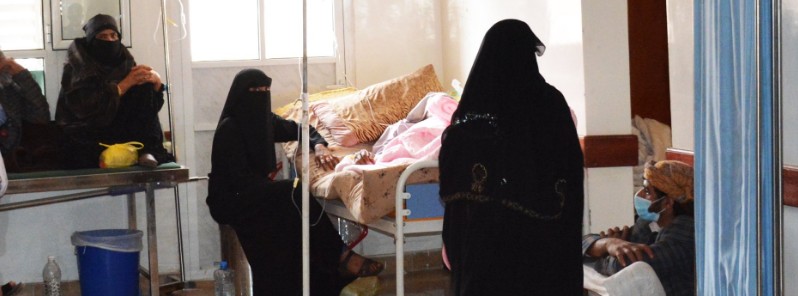Cholera outbreak rapidly spreading in Yemen

The cholera outbreak is rapidly spreading in Yemen, with reported cases tripling over the last week. Since April 27, 2017, at least 180 people have died and 11 000 suspected cholera cases have been reported across 18 governorates in Yemen.
On May 14, local health authorities in Sana'a declared a state of emergency in Sana'a over cholera, and called for international support. Likewise, aid agencies have called for additional mobilization of resources to scale up their assistance urgently, and have qualified the outbreak as 'entirely preventable', blaming the Yemen blockade and economic crisis.
This is the second wave of cholera-associated deaths in a year in Yemen, where more than 8 million people lack access to drinking water and sanitation, and where barely 45% of health facilities are functional.
Sana'a is controlled by the armed Houthi movement, which is aligned with Iran and fighting a Western-backed, Saudi-led coalition. More than 10 000 people have been killed and millions displaced in more than two years of war, which has also destroyed much of the country's infrastructure, Reuters reports.
Only a few medical facilities are still functioning and two-thirds of the population are without access to safe drinking water, the United Nations has said.
Dominik Stillhart of the ICRC told reporters in the port city of Aden on May 15 that at least 180 people had died from the acute diarrhoeal disease since April 27, and that 11 000 more suspected cholera cases had been reported across the country.
Houthi authorities have said 115 of those who have died were in the city of Sanaa and its province.
"What is happening today exceeds the capabilities of any healthy health system, so how can we (cope) when we are in these difficult and complicated conditions," Saba news agency quoted the Houthi-run administration's health minister Mohammed Salem bin Hafeedh as saying.
The ministry, after meeting in Sanaa with U.N. Humanitarian Coordinator Jamie McGoldrick and other international officials, called on humanitarian organizations and aid donors to help it avert an "unprecedented disaster".
Cholera is an acute enteric infection caused by the ingestion of bacterium Vibrio cholerae present in faecally contaminated water or food, according to the WHO. Primarily linked to insufficient access to safe water and proper sanitation, its impact can be even more dramatic in areas where basic environmental infrastructures are disrupted or have been destroyed.
The disease is characterized in its most severe form by a sudden onset of acute watery diarrhea that can lead to death by severe dehydration.
The extremely short incubation period – two hours to five days – enhances the potentially explosive pattern of outbreaks, as the number of cases can rise very quickly. About 75% of people infected with cholera do not develop any symptoms. However, the pathogens stay in their faeces for 7 to 14 days and are shed back into the environment, possibly infecting other individuals.
Cholera is an extremely virulent disease that affects both children and adults. Unlike other diarrhoeal diseases, it can kill healthy adults within hours. Individuals with lower immunity, such as malnourished children or people living with HIV, are at greater risk of death if infected by cholera.
Featured image credit: WHO

Does anyone but me think our government might unleash biological warfare against these people who are considered as a dangerous terrorist group?
Or at least, we do not seem to be taking this opportunity to make friends by saving their lives and the lives of their tiny sweet little kids who have not yet been radicalised.
Sad for our national karma.